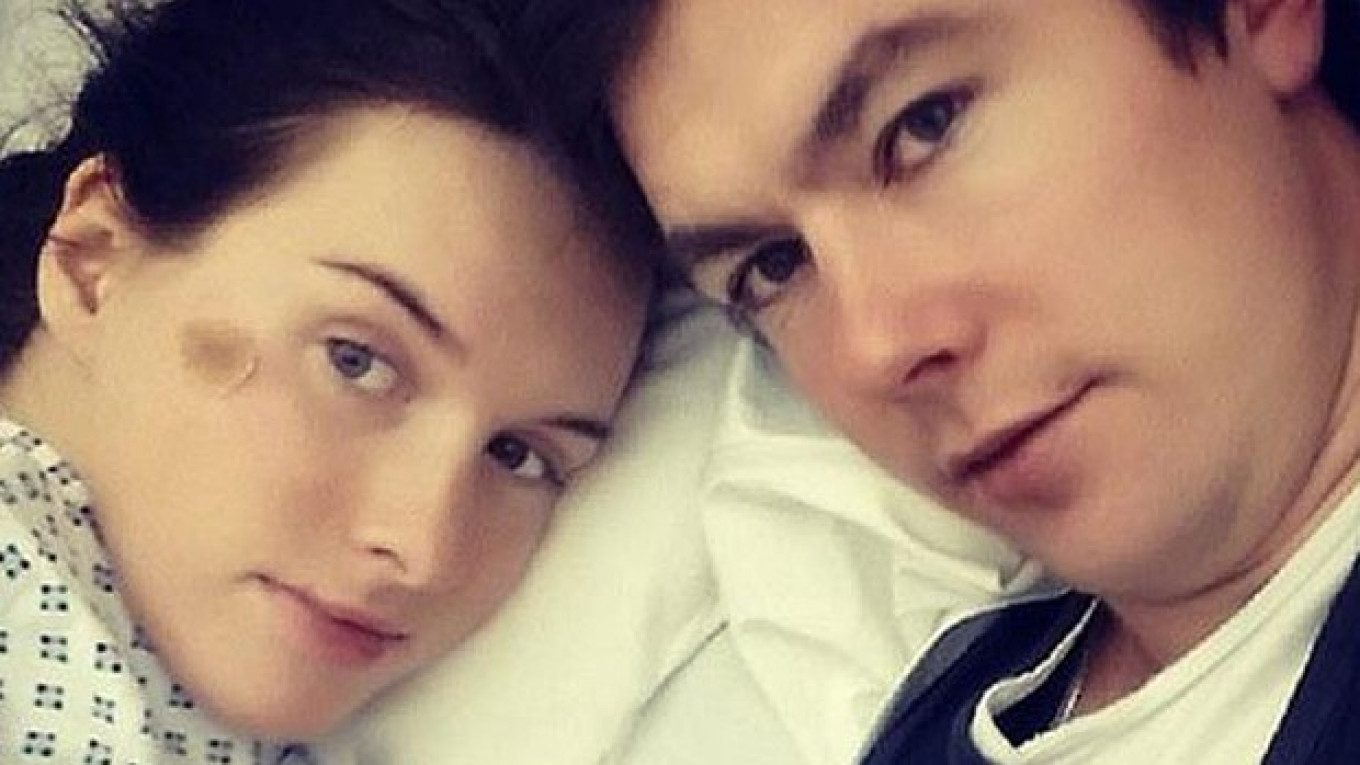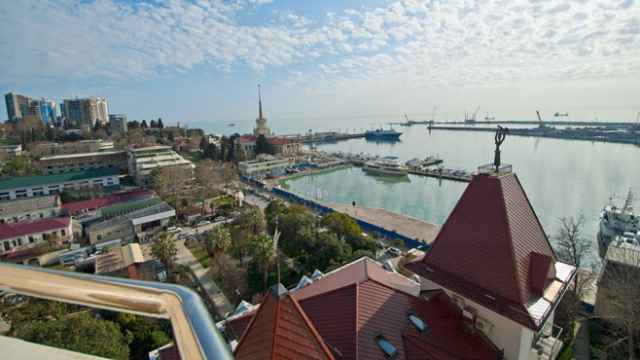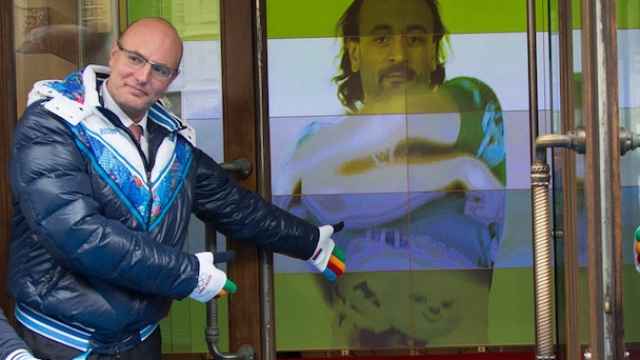Maria Komissarova has been told to forget about sport and move on with her life — which is not easy for a freestyle skier who dreamed of winning gold at last year's Sochi Olympics and now hopes only to walk again.
This time last year, Komissarova was among Russia's brightest talents, heading into a home Olympics as a glamorous face for the country's extravagantly expensive Winter Games.
Then everything changed.
Sunday marks the anniversary of an accident in training that left her paralyzed and facing an uncertain future, undermined by broken promises from the Russian government who have left her without the means to fund her costly rehabilitation.
Like many of Sochi's white elephant venues, she has been largely forgotten and languishes in Spain in the midst of a punishing treatment program, clinging onto the hope that she might be able to move freely again.
Twelve months ago, however, she had the world at her feet.
Scheduled to compete in the ski-cross, Komissarova, a silver medallist at the World Cup in 2012, undertook a fateful training routine and fell coming out of a jump at the Rosa Khutor Extreme Park, suffering a displaced spinal fracture.
"From a great height, I landed with my knees straight and they gave way immediately," the 24-year-old said.
The first six-hour operation, involving the insertion of a metal plate into her back, took place that day at Krasnaya Polyana in Sochi and it was not long before Russia's political elite rushed to her bedside.
"I remember I was asked, 'Do you want Vladimir Putin to come and visit you?' When he did arrive I did not understand anything because of the anesthetic. I was then told that I had asked the president to send me to Germany for treatment. I couldn't remember anything," she added.
Forget Sport
That treatment and the arduous rehab that would follow was going to prove costly — Russia's sports minister Vitaly Mutko said no expense would be spared and the state would pick up the bill.
The day after her accident, she was flown to Munich, where she had several more operations.
The Freestyle Federation of Russia recommended she undergo her rehabilitation back home, but she refused and in April traveled to Marbella in Spain to begin treatment at a private clinic run by Evgeny Blum.
The last nine months have been a hard, painful slog and present a stark contrast to the life of an Olympic hopeful, where training and competition were punctuated by glamorous photo shoots.
Blum has given her hope, as well as a 90 percent guarantee that she will walk again when other doctors said this was impossible, but her previous life must be consigned to the past.
"My doctor says I need to blank out everything and that I have a new goal in my life," she said.
"I need to forget about sport and everything that happened earlier and just look forward. Thinking about the past only hinders things and hampers my rehabilitation...
"I do rehab every day for six or seven hours. There are about 10 different programs, which work all the different muscle groups.
"A new training apparatus has become available recently called imitation walking. I spend two hours a day doing this without a break," she added.
"We come back from the clinic in the evening. We get something to eat and then it is already late and we don't have the strength to do anything else.
"I listen to the radio, watch television. In the summer I swim in the sea. I did knitting for a while, but gave it up almost immediately as it is difficult to concentrate on anything apart from rehab."
Costly Rehab
The hard work is paying off with faint signs of improvement starting to materialize. Komissarova said she can tense her thigh muscles and move her pelvis.
"If I put a hand on my boyfriend Alexei, then I can stand up. Everything is going to plan and I am making progress."
Yet such intensive care does not come cheap.
A banner on her personal website, set up to help fund her treatment, says her annual rehabilitation program costs $655,346 and the promises of state support have evaporated.
"The Russian Ski Federation did help me out for a while, but that has now stopped. However, we still get along," she said.
"I still have enough money left for the next three months. We hope that we can find support through my website www.maria-komissarova.com. The treatment is very expensive and I am thankful to everyone who has helped."
Her attitude towards home has also altered in the 12 months since her injury and she has no plans to return to Russia, a country she describes as ill-equipped to cope with the demands of the disabled.
"I won't go back until I am better. I do not want to live there in a wheelchair.
"After the accident, I was given a flat in St Petersburg, it is located on the first floor, however, you can only get to it after going up a small flight of stairs. In Russia there is no infrastructure for wheelchair users."
After the year she has endured, it is perhaps not surprising she does not let her focus wander too far into the future.
"The treatment was supposed to last for a year and nine months have already passed. However, I am ready to put in as much work as is needed. I know I will definitely be able to stand again on my legs.
"What will happen next? We will see. … I would like to help people who have similar injuries."
A Message from The Moscow Times:
Dear readers,
We are facing unprecedented challenges. Russia's Prosecutor General's Office has designated The Moscow Times as an "undesirable" organization, criminalizing our work and putting our staff at risk of prosecution. This follows our earlier unjust labeling as a "foreign agent."
These actions are direct attempts to silence independent journalism in Russia. The authorities claim our work "discredits the decisions of the Russian leadership." We see things differently: we strive to provide accurate, unbiased reporting on Russia.
We, the journalists of The Moscow Times, refuse to be silenced. But to continue our work, we need your help.
Your support, no matter how small, makes a world of difference. If you can, please support us monthly starting from just $2. It's quick to set up, and every contribution makes a significant impact.
By supporting The Moscow Times, you're defending open, independent journalism in the face of repression. Thank you for standing with us.
Remind me later.






